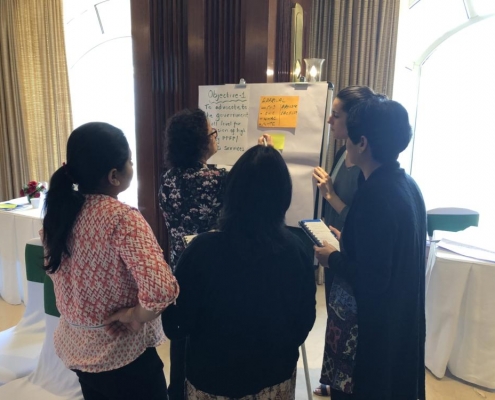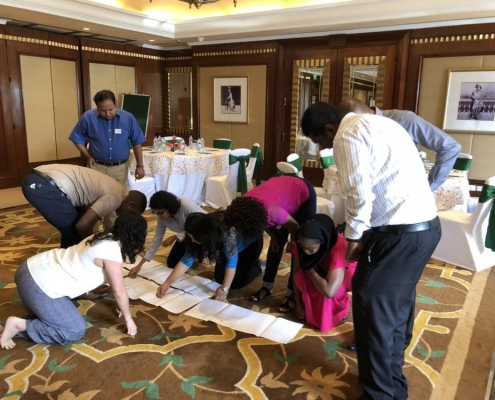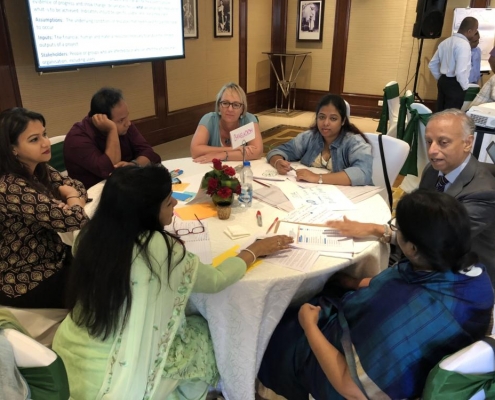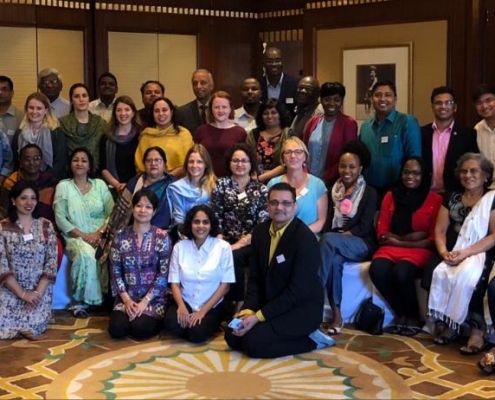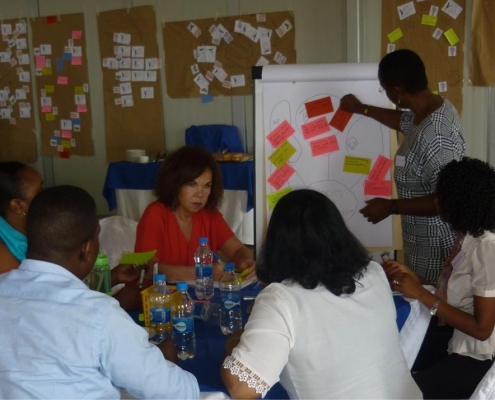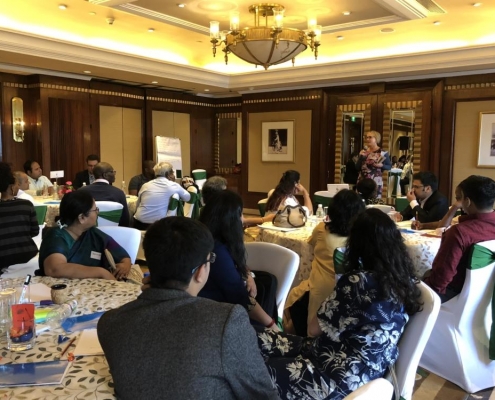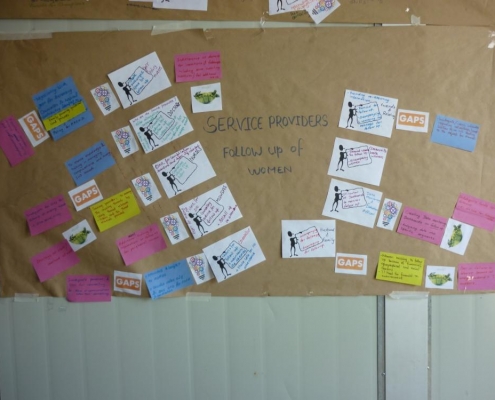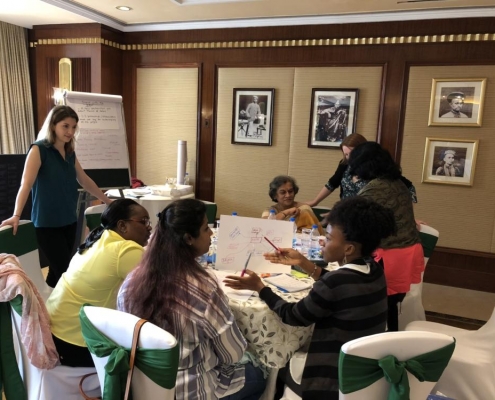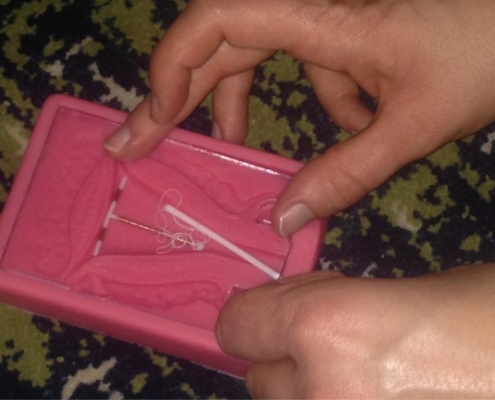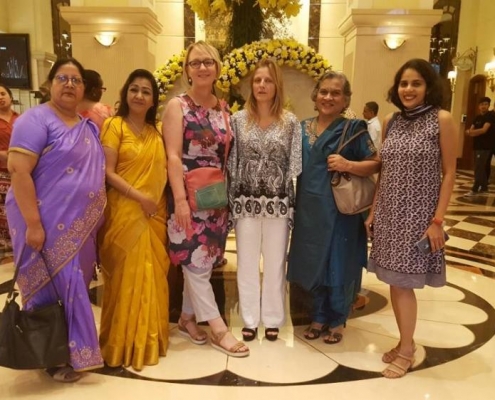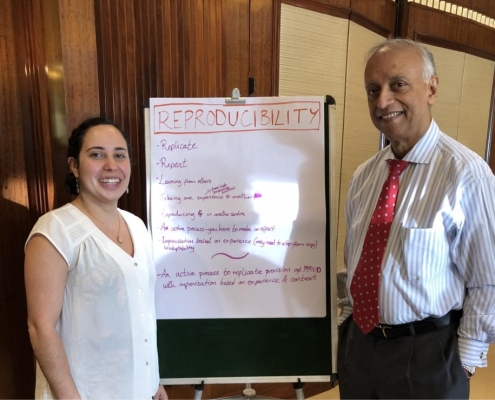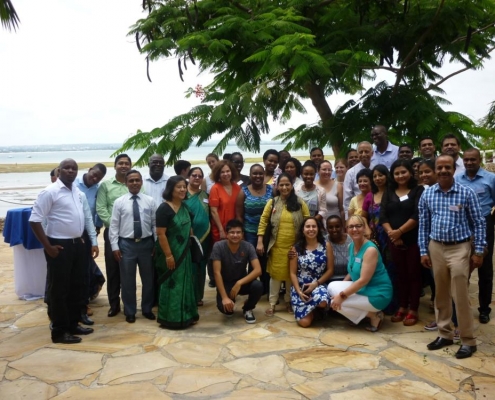The Challenge:
Bringing together a network of teams across Bangladesh, India, Kenya, Nepal, Sri Lanka, and Tanzania, to introduce a life-saving health service for women.
The Collaborators:
International Federation of Gynaecology and Obstetrics (FIGO) with the Royal Colleges of O&G across six countries (Post-Partum IUD or ‘PPIUD’ Initiative)

The Opportunity:
The PPIUD Initiative is an ambitious, six-country initiative, led by the International Federation of Gynaecology and Obstetrics (FIGO), seeking to introduce a life-saving health service for women who face extensive political, economic, social and technical barriers to family planning. After two years working on the Initiative, FIGO recognised the need to bring the teams together, with some expert support, to reflect on their work and results so far, learn from each other, and explore new approaches to strengthen their results.
The Work:
Living Collaborations worked with FIGO on their PPIUD Initiative for several years to support their ground-breaking work. To begin, we helped design and facilitate a three-day reflection and learning event for 40 people from six country teams in Dar El Salam, Tanzania. Working with a team from FIGO as well as an in-country Tanzanian team, we designed an innovative event, using Theory U methods, including strategies to embed new practices within FIGO and the country teams. Two years later, we came back to design and facilitate a four-day learning and planning event for 50 people from the six country teams, this time in Mumbai, India. Again, in collaboration with an internal team, we co-designed an innovative and participatory event focused on shared learning and sustainability following final phase funding.
The Outcomes:
The PPIUD Initiative designed multiple prototypes, both specific to each country and context as well as universal, to help them address their challenges and unlock future phase funding. We saw highly engaged teams, who each brought their most senior obstetricians, program managers, finance and evaluation specialists to the table. These participatory, collaborative workshops were grounded in equity and designed to make the most of everyone’s contributions, showing a marked difference from the customary, hierarchical team dynamics. The experience and skills gained proved to be transformative for many participants, especially the senior leaders who recognised a new way of leading for greater impact and innovation. It was also great to see junior-level staff, many having never spoken in a large gathering before, speaking up, expressing their ideas, and leading activities.
Major Benefits:
Collaborative Confidence; Inspired Innovation; Recognised Results
The Best Bit:
Building beautiful, long-term relationships and observing the progress, scale and impact of the program. To know that, through this initiative, women’s lives were being saved or prolonged and their children given a stronger start in life gave so much meaning and purpose to the collaboration. The opportunity to work with a wonderfully diverse group who were receptive to new approaches and practices designed to deepen their leadership, collaboration and impact made this a fabulous piece of work to contribute to.


